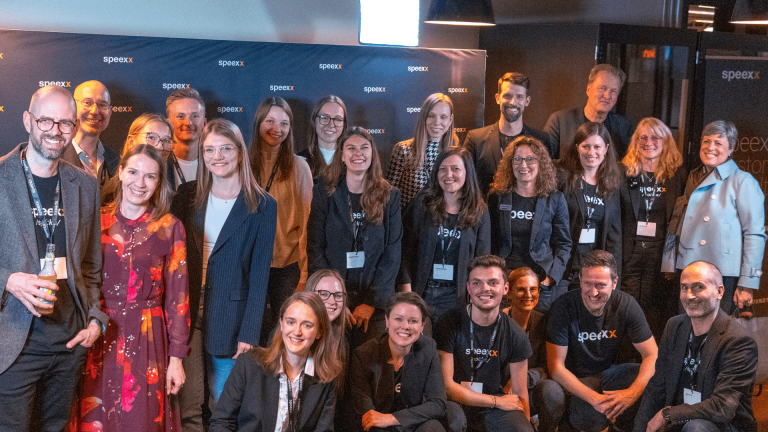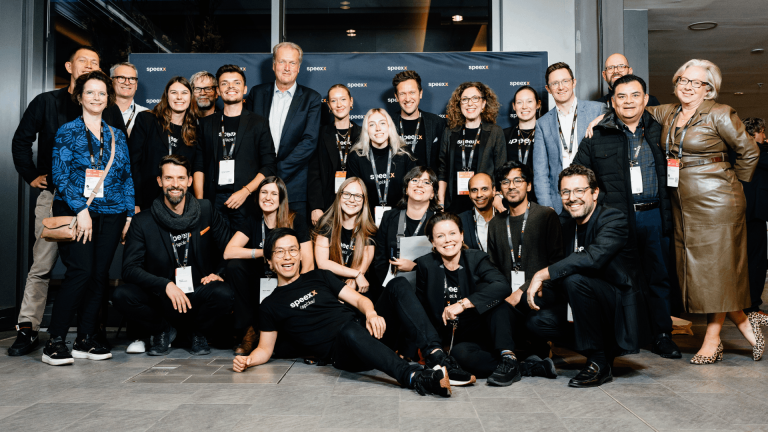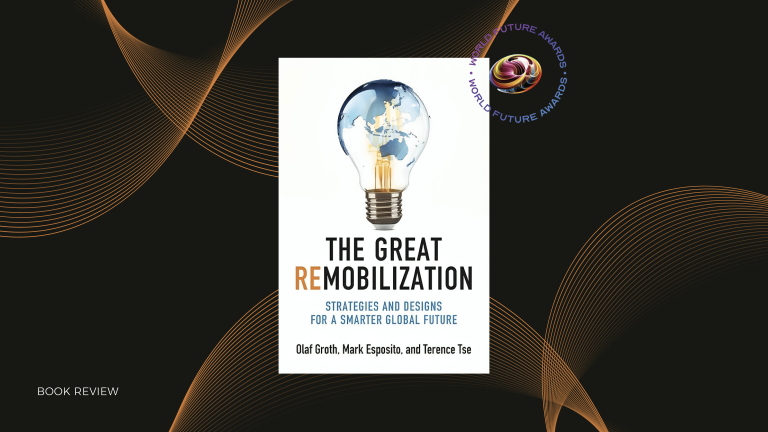
The Present and Future of AI in Marketing: Interview with Jay Koh, the new WFA Board Member
The World Future Awards board continues to expand its expertise thanks to new team members. We are proud to introduce Jay Koh, the new WFA Board Member, whose extensive experience in blockchain and Web3 will help recognize and celebrate the industry’s most brilliant and promising innovators. Jay Koh graciously agreed to answer our questions, and we’re happy to share his answers below.
World Future Awards: First of all, let us welcome you to the World Future Awards team and congratulate you on your new professional achievement. To begin, could you give a brief overview of your career and outline your core professional interests?
Jay Koh: I have been in the Web3 space since 2017. My career journey has been dynamic, spanning roles in different projects such as project management, marketing, and business development. And I’ve been fortunate to work with diverse teams and projects that have enriched my skill set and expertise.
I am the founder of Kryptoia, a blockchain advisory firm that helps companies and individuals leverage the power of blockchain technology. I also founded the Singapore Blockchain Club, a network of blockchain enthusiasts and professionals in 2018. In 2022, I founded the Association Blockchain Asia (ABA), a platform for blockchain collaboration and innovation.
I am a dedicated blockchain consultant who supports various blockchain projects in achieving their objectives. I provide strategic, marketing, and business development advice and guidance to help projects overcome challenges and seize opportunities.
WFA: What initially attracted you to the field of Web3, blockchain, and NFT? How did you develop your expertise in this area?
Jay Koh: What initially attracted me to the field of Web3, blockchain, and NFT was the potential to revolutionize various industries through decentralized technologies. I was fascinated by the concept of decentralization and its ability to democratize access, increase transparency, and eliminate intermediaries in different sectors such as finance, art, gaming, and supply chain management.
To develop my expertise in this area, I embarked on a journey of continuous learning and exploration. I began by immersing myself in relevant literature, whitepapers, and online resources to gain a fundamental understanding of blockchain technology and its applications. Additionally, I actively participated in online communities, forums, and discussion groups to stay updated on the latest developments and trends.
Overall, my journey to becoming proficient in this field has been characterized by curiosity, dedication, and a commitment to lifelong learning. I am passionate about leveraging blockchain technology to drive innovation, empower individuals, and create positive impact across various domains.
WFA: What accomplishments and milestones in your career are particularly important to you and crucial in terms of further growth and shaping your professional interests?
Jay Koh: Leading successful projects, launching innovative products or services, and contributing to impactful initiatives can be key accomplishments that shape professional interests and demonstrate expertise in this space. Able to lead the Association Blockchain Asia with a group of entrepreneurs to grow the Asia blockchain community to impact the Web3 space.
WFA: Web3 is one of the most relevant and fastest-growing high-tech areas. How do you manage to stay on the crest of the wave and maintain a leadership position in this tumultuous industry?
Jay Koh: Staying on the crest of the wave and maintaining a leadership position in the rapidly evolving landscape of Web3 requires a combination of proactive strategies, continuous learning, and adaptive leadership. Here’s how I manage to stay ahead in this tumultuous industry:
Continuous Learning and Skill Development: I prioritize ongoing education and skill development to stay updated on the latest trends, technologies, and developments in Web3. This involves regularly attending industry conferences, workshops, and webinars, as well as pursuing relevant courses and certifications. By staying abreast of emerging trends and advancements, I can anticipate changes and adapt my skills accordingly.
Networking and Collaboration: I actively engage with industry peers, thought leaders, and stakeholders through networking events, online forums, and collaborative projects. Building strong relationships within the Web3 community enables me to exchange ideas, share insights, and collaborate on innovative solutions. By fostering a network of trusted contacts, I gain valuable perspectives and stay connected to the pulse of the industry.
Experimentation and Innovation: I embrace a culture of experimentation and innovation, constantly exploring new ideas, technologies, and use cases within the Web3 space. This involves experimenting with new tools, platforms, and protocols, as well as seeking out opportunities for creative problem-solving and disruptive innovation. By taking calculated risks and pushing the boundaries of what is possible, I can stay ahead of the curve and drive meaningful change in the industry.
WFA: How would you describe the marketing industry before Web3 and after it? What are the essential changes?
Jay Koh: Before Web3, the marketing industry operated primarily within centralized systems, relying on traditional channels such as television, radio, print media, and digital advertising platforms like Google and Facebook. Marketing efforts were often one-way communications from brands to consumers, with limited opportunities for interaction or engagement beyond passive consumption of content. Here’s how the marketing industry has evolved after the emergence of Web3:
Decentralization and Disintermediation: Web3 introduces decentralized platforms and protocols that reduce reliance on intermediaries, such as advertising networks and social media platforms. This enables direct peer-to-peer interactions between brands and consumers, bypassing traditional gatekeepers and intermediaries.
Ownership of Data and Identity: In the Web3 era, individuals have greater ownership and control over their data and digital identity. Blockchain technology allows users to manage their personal information securely, granting permission for its use and enabling monetization through token-based incentives.
Tokenized Incentives and Rewards: Web3 introduces token-based economies where users are rewarded with tokens for their engagement, attention, and contributions to decentralized platforms. Marketing campaigns can leverage tokenized incentives to incentivize desired behaviors, such as sharing content, providing feedback, or participating in community activities.
Transparency and Trust: Blockchain technology provides transparency and immutability, increasing trust between brands and consumers. Smart contracts enable verifiable transactions and enforce trustless agreements, reducing the risk of fraud and enhancing accountability in marketing interactions.
WFA: Going beyond your core professional interests and reflecting on society and humanity as a whole – what impact has the emergence of blockchain, NFT, and Web3 had on our shared future? What global opportunities and perspectives have these technologies opened up for us?
Jay Koh: The emergence of blockchain, NFTs, and Web3 technologies has had a profound impact on our shared future, presenting both opportunities and challenges that extend far beyond individual professional interests. Here’s how these technologies have influenced society and humanity as a whole, along with the global opportunities and perspectives they have opened up:
Decentralization and Empowerment: Blockchain and Web3 technologies have the potential to decentralize power structures and empower individuals by democratizing access to financial services, information, and decision-making processes. This has the potential to reduce inequality, promote financial inclusion, and empower marginalized communities worldwide.
Ownership and Control: NFTs and blockchain technology enable individuals to assert ownership and control over digital assets, including art, music, collectibles, and intellectual property. This has implications for creators, enabling them to monetize their work directly, bypassing traditional intermediaries and gatekeepers.
Digital Sovereignty and Privacy: Web3 technologies enable individuals to maintain sovereignty and control over their digital identities and data. By leveraging decentralized identity solutions and cryptographic privacy tools, individuals can protect their privacy, mitigate surveillance, and regain control over their online presence.
Innovation and Collaboration: Blockchain and Web3 ecosystems foster innovation and collaboration by providing open, permissionless platforms for developers, entrepreneurs, and creatives to build and experiment with new ideas and business models. This has led to a proliferation of decentralized applications (dApps), protocols, and experiments across various industries.
WFA: What factors do you believe are critical to sustaining growth in the digital space, particularly in Web3 marketing and NFT?
Jay Koh: Several factors are critical to sustaining growth in the digital space, particularly in Web3 marketing and NFTs:
Regulatory Compliance: As the digital space evolves, regulatory frameworks around blockchain, cryptocurrencies, and NFTs are likely to become more robust. Sustaining growth requires businesses to stay informed about regulatory developments and ensure compliance with relevant laws and regulations to maintain trust and legitimacy in the market.
Scalable Infrastructure: The scalability of blockchain networks and infrastructure is essential for accommodating increasing demand and supporting growing user bases. Improvements in scalability solutions, such as layer 2 protocols, sidechains, and sharding, are crucial for sustaining growth in Web3 marketing and NFT platforms.
User Experience and Accessibility: Enhancing the user experience and making Web3 marketing and NFT platforms more accessible to mainstream users is critical for sustaining growth. This includes improving usability, reducing friction in onboarding processes, and providing educational resources to help users understand and navigate the technology.
Community Engagement and Governance: Building and nurturing vibrant communities around Web3 marketing initiatives and NFT projects is crucial for sustaining growth. Engaging with users, soliciting feedback, and involving the community in decision-making processes through decentralized governance mechanisms fosters loyalty, trust, and long-term sustainability.
WFA: In your opinion, what trends in marketing and digital interactions will gain relevance over the next 10 years?
Jay Koh: Over the next 10 years, several trends in marketing and digital interactions are likely to gain relevance, driven by technological advancements, changing consumer behaviors, and evolving market dynamics. Here are some key trends to watch:
Voice Search and AI Assistants: The rise of voice-enabled devices and AI assistants will reshape the way consumers search for information and interact with brands. Optimizing content for voice search and developing AI-powered chatbots and virtual assistants will become increasingly important for businesses to meet the needs of voice-first consumers.
Augmented Reality (AR) and Virtual Reality (VR): AR and VR technologies will transform digital interactions by enabling immersive and interactive experiences. Marketers can leverage AR and VR to create engaging product demonstrations, virtual showrooms, and branded experiences that captivate audiences and drive brand engagement.
Blockchain-based Marketing: Blockchain technology will disrupt traditional marketing practices by providing transparent, secure, and decentralized solutions for data management, advertising, and customer engagement. Blockchain-based marketing platforms can offer enhanced data privacy, fraud prevention, and transparent reward systems, fostering trust and accountability in digital interactions.
Overall, the next decade will witness significant advancements in marketing and digital interactions driven by technology, consumer preferences, and market trends.
WFA: Your position as a board member of the World Future Awards involves selecting and evaluating nominees, leading innovators, and enthusiasts in the tech industry. What factors are most important to you in terms of identifying potential WFA winners?
Jay Koh: Innovation and Creativity: I look for nominees who demonstrate innovation and creativity in their approach to solving problems or addressing challenges in the tech industry. Whether it’s developing groundbreaking technologies, introducing disruptive business models, or pushing the boundaries of what is possible, innovation is a key criterion for identifying potential WFA winners.
Impact and Significance: I assess the impact and significance of nominees’ contributions to the tech industry and society at large. Winners should have made meaningful contributions that have the potential to drive positive change, improve lives, or create value for individuals, businesses, or communities.
Scalability and Sustainability: I consider the scalability and sustainability of nominees’ projects, initiatives, or innovations. Winners should demonstrate the potential to scale their solutions beyond initial implementations and sustain their impact over the long term, whether through business growth, adoption by users, or continued relevance in evolving markets.
Ethics and Social Responsibility: I evaluate nominees based on their commitment to ethical principles and social responsibility. Winners should demonstrate integrity, transparency, and a commitment to ethical conduct in their work, as well as a consideration for the broader societal implications of their innovations.
Collaboration and Leadership: I look for nominees who exhibit strong leadership qualities and the ability to collaborate effectively with diverse stakeholders. Winners should demonstrate leadership in driving change, fostering collaboration, and inspiring others within the tech industry and beyond.
WFA: What advice do you have for companies and individuals who aim to create innovative products and services to improve the world of the future?
Jay Koh: For companies and individuals aiming to create innovative products and services to improve the world of the future, here are 3 key pieces of advice:
Identify Real Problems: Start by identifying real-world problems or challenges that you are passionate about solving. Look for pain points or inefficiencies in existing systems, industries, or processes that can be addressed through innovation and technology.
Think Long-Term and Sustainable: Focus on building products and solutions that have long-term sustainability and positive societal impact. Consider the environmental, social, and economic implications of your innovations, and strive to create sustainable solutions that benefit both present and future generations.
Embrace Creativity and Experimentation: Foster a culture of creativity, experimentation, and risk-taking within your organization. Encourage employees to think outside the box, explore new ideas, and experiment with innovative approaches to problem-solving.
To learn more about Jay Koh, visit his LinkedIn profile.
MORE NEWS

World Future Awards Celebrates the Top 100 AI Tech Companies of 2025

Speexx: A Global Pioneer in AI-Powered People Development

Speexx Named One of the Top 100 AI Tech Companies by World Future Awards 2025

Lydia Teryoshina Appointed to World Future Awards Board of Experts

Building Experiences, Not Just Products: The Future of Tech

🌐 World Future Awards Honors the Best Fashion Tech Companies in the World 2025

Book Review: The Great Remobilization: Strategies and Designs for a Smarter Global Future, by Mark Esposito
NEWSLETTER
Sign up to learn more about our project and to stay up to date.

